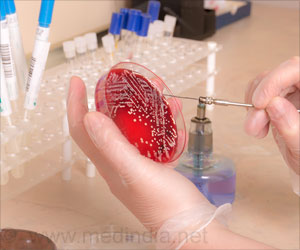Scientists have identified USP18, a double agent in the immune system that makes people vulnerable to bacterial infections.

TOP INSIGHT
Deleting the specific gene for USP18 in certain immune system cells helps the body fight bacterial infections.
Study senior author John Teijaro, PhD, assistant professor at Scripps Research, says scientists have long wanted to understand a paradox in immunology--the question of how interferon-stimulated genes (ISGs) that usually help against viruses also dampen the host's ability to resist many bacterial infections.
For the new study, the team found that deleting a single ISG known as Usp18 in mouse dendritic cells, a type of immune cell, enhanced the body's ability to control infections with two strains of Gram-positive bacteria. They also found that normal induction of USP18 after infection impaired antibacterial responses mediated by a protein called tumor necrosis factor and accompanying reactive oxygen species generation, which help destroy bacteria in cells. "Our results were unexpected because the absence of USP18 augments type 1 interferon signaling, which, if the current thinking is correct, should promote rather than prevent bacterial infection," says Teijaro.
Teijaro emphasizes that the study is basic biology--it illuminates the fundamental workings of the immune system--but it's worth investigating whether USP18 can be targeted with drug therapies to treat bacterial infections. Knowing how to inhibit USP18 function could also give doctors the tools to boost interferon activity to better fight viral infections as well.
"One of our goals going forward is to test this therapeutically," says Teijaro. "We also want to expand our investigation to understand the role of USP18 in secondary bacterial pneumonia and tuberculosis infections."
Source-Eurekalert
 MEDINDIA
MEDINDIA




 Email
Email









